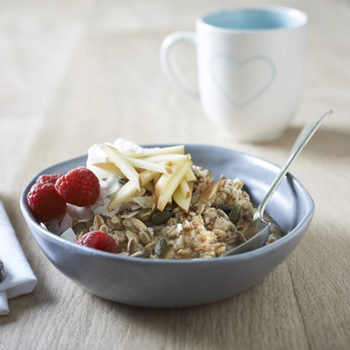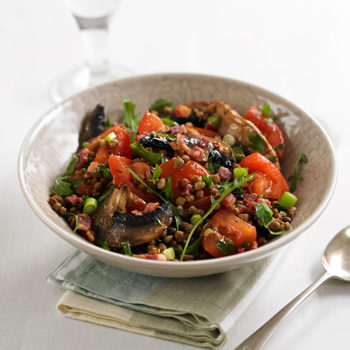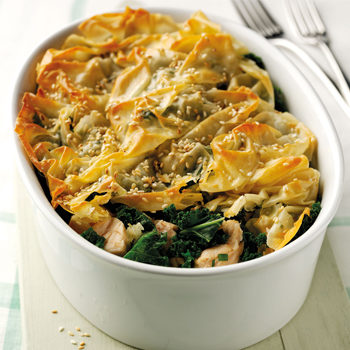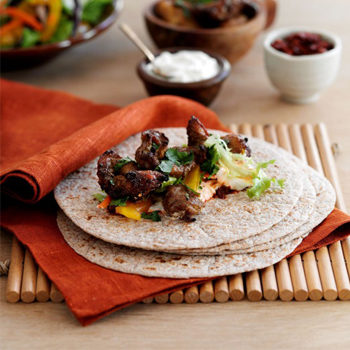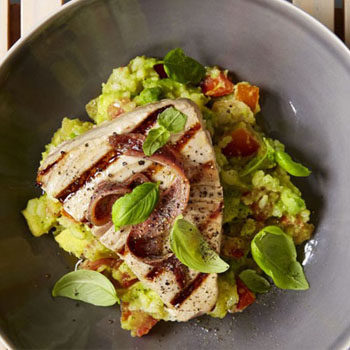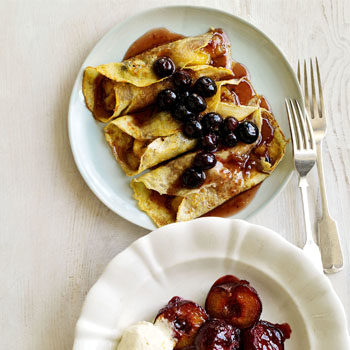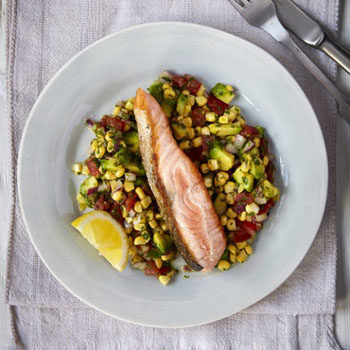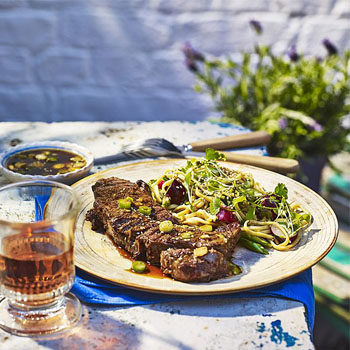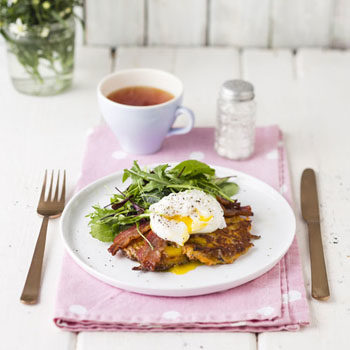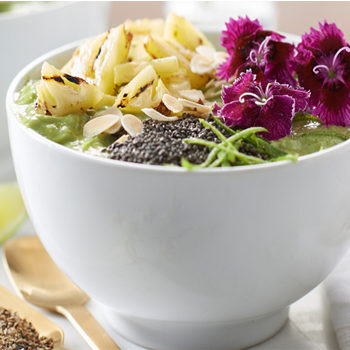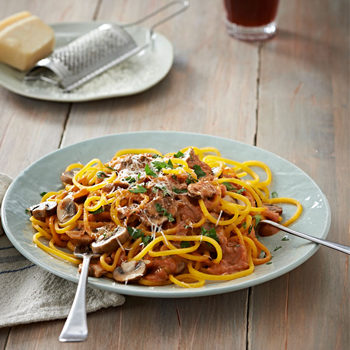Nutritionist Fiona Hunter gives us the scoop on the super foods that will rev up your diet and help you find your ‘get up and go’.
ALSO SEE: Superfoods you have to try
1. Oats
Oats deliver those important B vitamins while at the same time being rich in low-GI soluble fibre. This means that they are digested gradually, helping to prevent peaks and dips in your blood-glucose and energy levels. Try eating oat cakes as snacks, putting a spoonful of oat flakes in smoothies, or even using them for savoury flapjacks. Steer clear of instant oatmeal, though, which is highly processed.
TRY THIS: Sarah Graham’s Coconut And Apple Overnight Oats Recipe
2. Lentils
A brilliant source of soluble fibre, for slow, steady glucose release, lentils are also rich in those energy stars – B vitamins, iron, and magnesium – plus a host of other nutrients. Experiment with different types – red lentils for soups and dips, green or brown for dhal, and Puy for salads.
TRY THIS: Lentil, Mushroom, Tomato and Rocket Salad Recipe
3. Kale
Kale is a positive powerhouse of energy due to its high content of magnesium needed to trigger the release of ATP (adenosine triphosphate), which works like a rechargeable battery to store and release the energy that powers cells. The leaves are tasty in pesto, sautéed, or added to soups and juices. Other dark green leafy veg, as well as nuts, bread, fish, meat and dairy products also pack a powerful magnesium punch.
TRY THIS: Salmon and Kale Phyllo Pie Recipe
4. Plain Yoghurt
Amino acids found in protein-rich foods, such as yoghurt, boost levels of brain messenger chemicals, which make you more alert and active. Choose a low-fat, high-protein variety, with a handful of berries for a great energy-boosting power snack. Steer clear of sweetened yoghurts, which contain sugar.
TRY THIS: Spiced Chicken Wraps With Crunchy Salad, Yoghurt And Harissa
5. Avocados
These delicious fruits are packed full with Vitamin B6 – one of the key energy-boosting performers in the B-group of vitamins. It’s involved in more than 100 different enzyme reactions and, most importantly, the metabolism of protein, carbs and fats. B6 is also needed for a sharp brain and healthy immune system. Enjoy avos in salads or mashed as guacamole – as if you really needed another excuse to eat them.
TRY THIS: Tuna And Creamy Avocado Salad Recipe
6. Bananas
Bananas are loved by athletes and for good reason – they are full of potassium, an electrolyte needed for optimum nerve and muscle performance. Potassium isn’t stored for long in the body, so levels can drop if you’re stressed or very active, when it’s lost in sweat. Bananas also contain fructose, a type of sugar that helps replenish glycogen (the body’s storage form of glucose) in the muscles and liver, soluble fibre and vitamin B6, plus a host of other energy-boosting vitamins, minerals and trace elements.
TRY THIS: Blueberry and Banana Pancakes With Caramel Sauce Recipe
7. Salmon
Another great source of vitamin B6, salmon contains magnesium, potassium and omega-3s.
TRY THIS: Pan-Fried Salmon on a Fresh Sweetcorn Salsa Recipe
8. Water
You can be dehydrated long before you actually feel thirsty. Our brains are made up of around 80% water; forget to drink regularly and those grey cells will soon become sluggish, while energy levels will take a nosedive. How much water you need will depend on how active you are, how much you sweat, how much you weigh and the temperature outside; but 1,2 to 1,5 litres a day is about right for a woman. If in doubt, the colour of your urine is an instant guide – pale straw colour is good, but dark yellow means you need a glass or two of water.
ALSO SEE: Can’t Lose Weight? Here Are 6 Questions To Ask Yourself
9. Steak
Iron deficiency is one of the most common causes of low energy. Clues include fatigue, weakness, pallor, headache, and irritability. Red meat is one of the best sources, but chicken, fish and liver are also good. If you’re vegetarian, then dried apricots, figs, fortified breakfast cereals, broccoli, wholewheat bread, lentils, chickpeas and baked beans are alternatives.
TRY THIS: Korean-Style BBQ Steak With Soy and Sesame Dip Recipe
10. Eggs
Eggs are an excellent source of vitamin B12, which helps release energy from food, aids in the manufacture of red blood cells, and also helps the body process another B vitamin – folic acid. They also contain choline – a nutrient used to make the brain chemical acetylcholine, which helps boost alertness.
TRY THIS: Sweet Potato Rösti With Poached Eggs and Crispy Bacon
11. Ginger
This ancient root is extremely versatile. Not only does it reduce feelings of nausea and aid digestion, but it’s a proven anti-inflammatory. Even better, its antimicrobial and antifungal properties help fight infections and boost your immunity. So throw some in a smoothie, grate it into a stir-fry, add it to soup or stew it in tea.
TRY THIS: Super Healthy Ginger and Lemon Tea Smoothie Bowl Recipe
12. Mushrooms
Edible mushrooms contain varying degrees of protein and fibre. They also contain B vitamins and a powerful antioxidant called selenium, which supports the immune system and prevents damage to cells and tissues. Mushrooms are one of the only non-animal sources of vitamin D when they have been exposed to UV light.
TRY THIS: Carb-Free Butternut Spaghetti With Mushrooms and Garlic Recipe
Compiled by Food and Decor Editor, Claire Badenhorst


